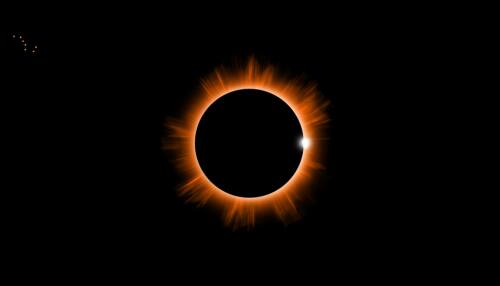- News>
- Culture
Surya Grahan: After This Total Eclipse, Next Solar Eclipse Will Be Visible On August 23, 2044

Surya Grahan 2024 Date: A total solar eclipse is set to grace the sky on April 8, 2024; here is the date, time, location and more.
In the year 2024, skywatchers are getting excited and gearing up for four unique celestial eclipses. The year 2024 will witness two solar eclipses and two lunar eclipses. When the Moon passes between the Sun and Earth, and the Moon's shadow is cast on Earth, a Solar Eclipse or Surya Grahan takes place. Meanwhile, when the Earth comes between the Sun and Moon - with all three bodies lying on the same orbit plane - the Sun casts Earth's shadow onto the Moon and a lunar eclipse or Chandra Grahan takes place.
A total solar eclipse will take place on April 8. The total eclipse will cross North America, passing over Mexico, the United States, and Canada. This solar eclipse is occurring on a Monday. The sky is set to darken as if it were sunrise or sunset.
How To Watch The Total Solar Eclipse?
If you want to witness the total solar eclipse, go to NASA's live feed at their official website. Starting at 10:30 PM IST on April 8 and lasting until 1:30 AM IST on April 9, the feed will be available live.
When is the Next Total Solar Eclipse?
According to NASA's official website, "After the total solar eclipse on April 8, 2024, the next total solar eclipse that can be seen from the contiguous United States will be on August 23, 2044. We can't normally see the corona – the Sun's outer atmosphere – because the Sun's surface below it is so much brighter."
Where is the Total Solar Eclipse Visible?
The solar eclipse of April 8 will continue from Mexico into Texas, where it enters the United States, and then passes through Oklahoma, Arkansas, Missouri, Illinois, Kentucky, Indiana, Ohio, Pennsylvania, New York, Vermont, New Hampshire, and Maine. Beginning in Southern Ontario, the eclipse will cross into Canada and go through Quebec, New Brunswick, Prince Edward Island, and Nova Scotia. The eclipse will leave North America's continental region on Canada's Atlantic coast around Newfoundland.

